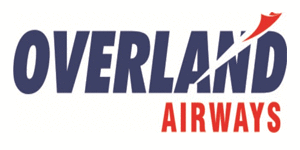 Nigerian Government to Tackle Illegal Charter Operations in Aviation Sector
Nigerian Government to Tackle Illegal Charter Operations in Aviation Sector
The Ministry of Aviation and Aerospace Development in Nigeria has uncovered serious regulatory flaws and security vulnerabilities in the Permit for Non-Commercial Flight (PNCF) system, which have led to significant revenue losses and enabled criminal activities within the aviation sector. These revelations come following an in-depth investigation into illegal private charter operations, spearheaded by a seven-member task force appointed by the Ministry.
Criminal Activities at General Aviation Terminal
One of the major findings of the investigation was the misuse of the General Aviation Terminal in Abuja for illegal activities, including money laundering, drug trafficking, and the transfer of fugitives. The committee has recommended the immediate shutdown of the terminal to prevent further exploitation and ensure that the aviation sector operates under lawful and transparent conditions.
The task force, led by Captain Ado Sanusi, highlighted various systemic challenges, such as regulatory weaknesses, insufficient oversight, and inadequate security measures, which have created an environment where illegal activities can thrive. These issues not only endanger aviation safety but also create an uneven playing field for legitimate private charter operators.
Recommendations to Strengthen Oversight
The committee has proposed a series of measures to address these challenges and restore integrity to Nigeria’s aviation sector. Key recommendations include:
- Strengthening regulatory oversight: Enhancing the capacity of the Nigerian Civil Aviation Authority (NCAA) to ensure compliance with aviation laws and international standards.
- Improving security measures: Implementing stricter surveillance and monitoring systems at terminals to curb criminal activities.
- Transparent private charter operations: Ensuring that all private charter flights are fully documented and adhere to legal requirements.
- Closing loopholes: Addressing systemic weaknesses in the PNCF system to prevent exploitation.
These steps are aimed at creating a safer and more equitable environment for aviation operators while safeguarding the sector from criminal exploitation.
Minister Pledges to Act
Mr. Festus Keyamo, the Minister of Aviation and Aerospace Development, has vowed to take decisive action against illegal charter operations and related issues. He acknowledged that the problem of illegal charters has persisted for years but emphasized that his administration is committed to addressing the matter head-on. “We will not fail to safeguard the aviation industry,” Mr. Keyamo stated, underlining his determination to implement the committee’s recommendations.
The Minister commended the task force and the NCAA for their cooperation and thorough investigation. He assured stakeholders that the findings and recommendations would not be ignored, promising that the issue would receive the attention it deserves to ensure lasting solutions.
Impact on the Aviation Industry
The prevalence of illegal private charter operations not only undermines aviation safety but also affects the commercial viability of licensed operators. Legitimate players in the industry face unfair competition as illegal operators evade regulatory fees and oversight. This situation has resulted in revenue losses for the government and a decline in trust in the aviation sector.
The task force’s recommendations, if implemented, could restore confidence in Nigeria’s aviation industry, ensuring that all operators adhere to the same rules and standards. Enhanced security measures, regulatory compliance, and transparency are expected to create a safer and more equitable environment for both operators and passengers.
Opportunities for African Travel Professionals
The crackdown on illegal charter operations presents opportunities for travel professionals and aviation stakeholders across Africa. By restoring regulatory compliance and improving security, Nigeria can position itself as a more reliable hub for private charters and legitimate aviation services. Travel agents and tour operators can leverage these reforms to build partnerships with trustworthy charter operators, ensuring safer and more transparent travel experiences for their clients.
Additionally, the government’s efforts to strengthen oversight and modernize the sector could attract international investors and expand opportunities for tourism and business aviation in Nigeria. Travel professionals can capitalize on the anticipated improvements in service delivery and safety to promote Nigeria as a prime destination for both leisure and business travelers.
